The Redskins' turnaround in 2015 can be credited to many things. But what shouldn't be overlooked is how the team became closer with a commitment to community.
The day after the Redskins' season ended, players filtered into the team facility in Loudoun County, Va., still groggy and frustrated from the night before. The effects from a 35-18 loss to the Packers in the Wild Card round of the playoffs were still fresh. They had every reason to be upset. Losing isn't fun, especially when it's unexpected. This group was confident they'd be together for at least another week, to continue their improbable run from mid-season question mark to division champions to playoff threat.
Maybe if this were a different year — even last year — the majority of players that trudged to their lockers and boxed up their belongings that Monday would have given a few handshakes goodbye and then exited quietly. They would have given their few minutes to the media and left, doing their best to hang around for as little as possible, trying to forget a forgettable season.
But 12 months can do a lot for a team, one that overhauled its coaching staff and active roster, both before and through the end of the regular season, thanks to a new general manager which remained committed to veteran leadership and strong character athletes. Those intangibles were on display all season, but their resonance was amplified on Jan. 11, when players sat together one last time for a round of cards, a bite of lunch and a prolonged salute to the season.
This was the climax of what began nine months ago — teammates hunched into their favorite leather seats, making space available on the arms and backs of chairs for those wanting to bond. This was the summer camp goodbye, a motley crew of pre-teens, at first strangers, eventually lifelong friends, promising to write each other before their moms and dads drive up and make them depart for the school year.
Instead, these were full-grown men, and it was the offseason they were staring down, reminiscing on a first-place NFC East finish, which many outsiders refused to believe could happen after a 2-4 start to the season. But acquaintances became friends became family, the natural progression when you share the labor and glory of a winning campaign.
The only thing missing on this Monday was a fire pit and s'mores.
A space to gather
The 2015 season was different from seasons past for a variety of reasons, but let's start with those leather couches and card tables.
In years past, the Redskins locker room was exactly that: a room with lockers, plus a shower. The only resting spot was each player's stool, facilitating conversations – if they were talkers -- with only adjacent teammates. Cliques and corners formed, breeding isolation between position groups, veterans and rookies and the practice squad, situated in the island of centralized lockers.
The Washington Redskins players officially wrapped up the 2015 season on Monday, Jan. 11, 2016, cleaning out their lockers and speaking to the media before beginning their offseasons.




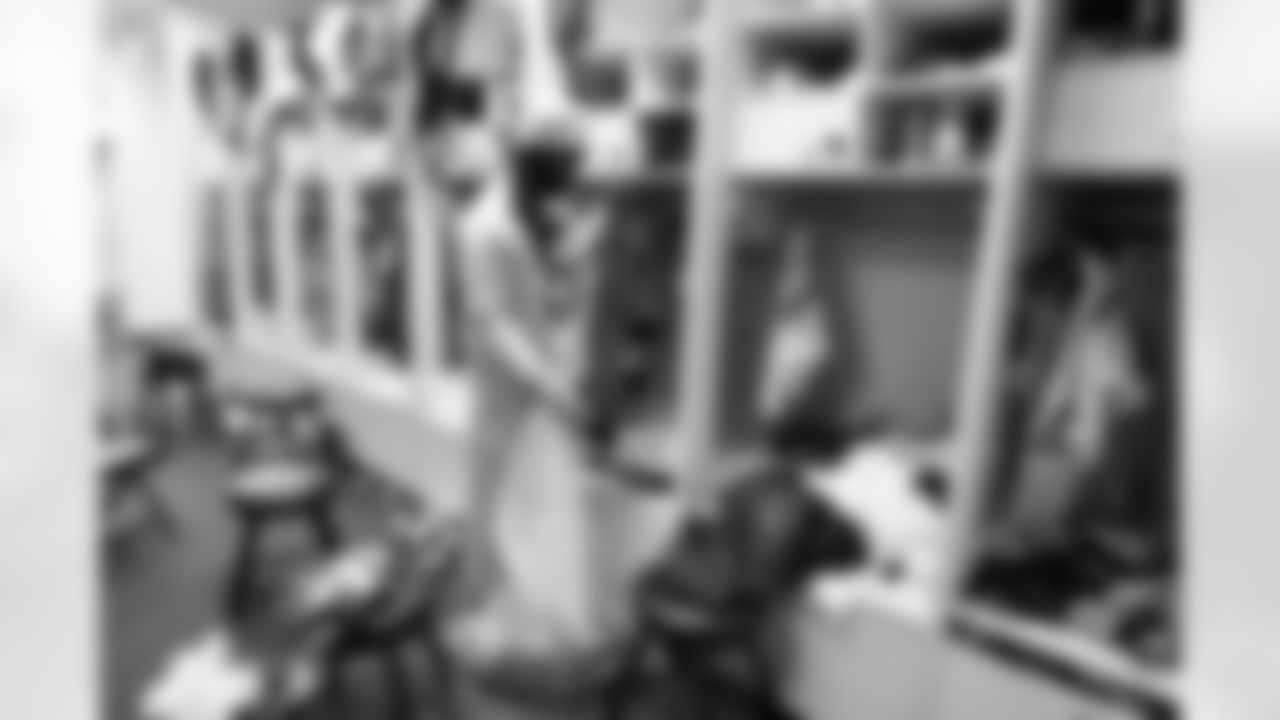






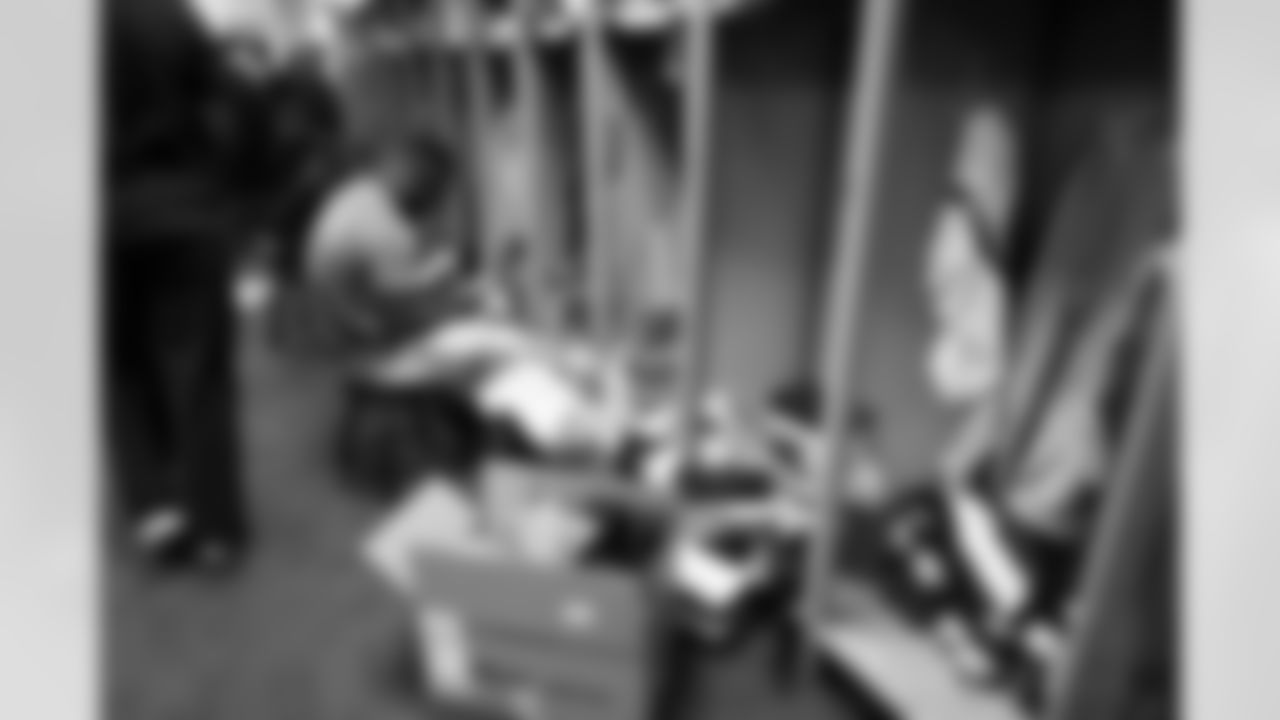

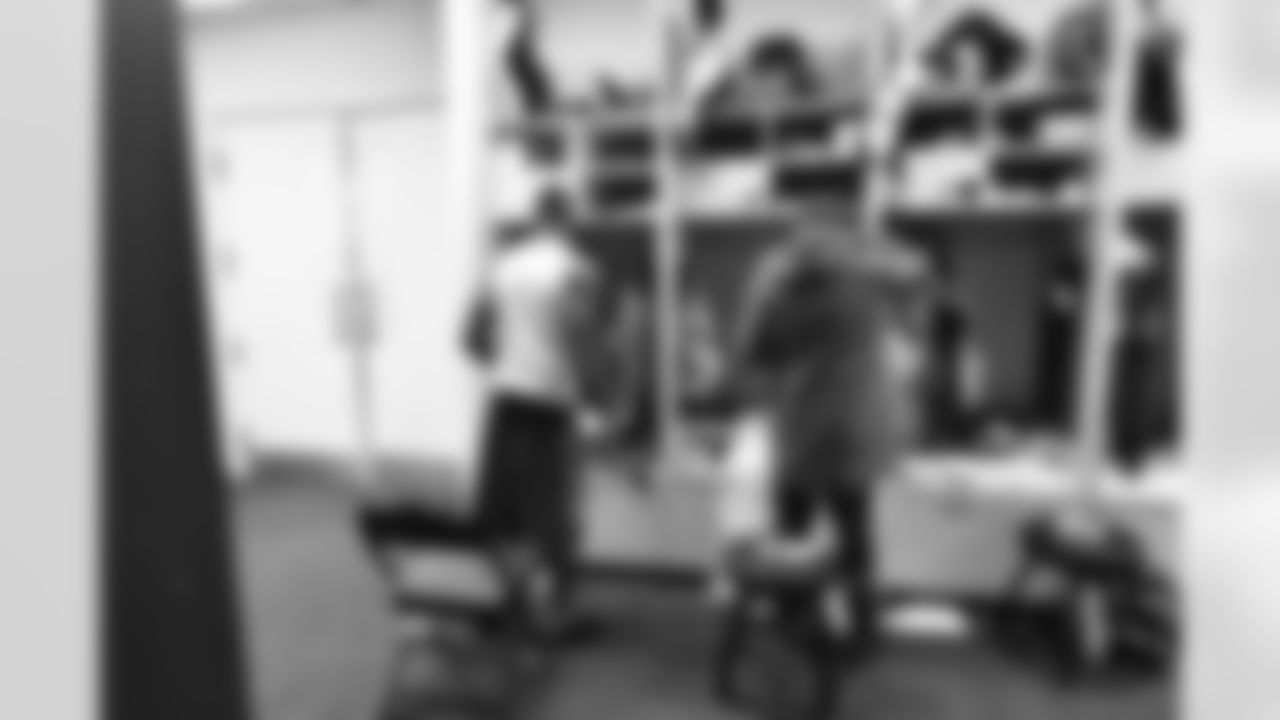
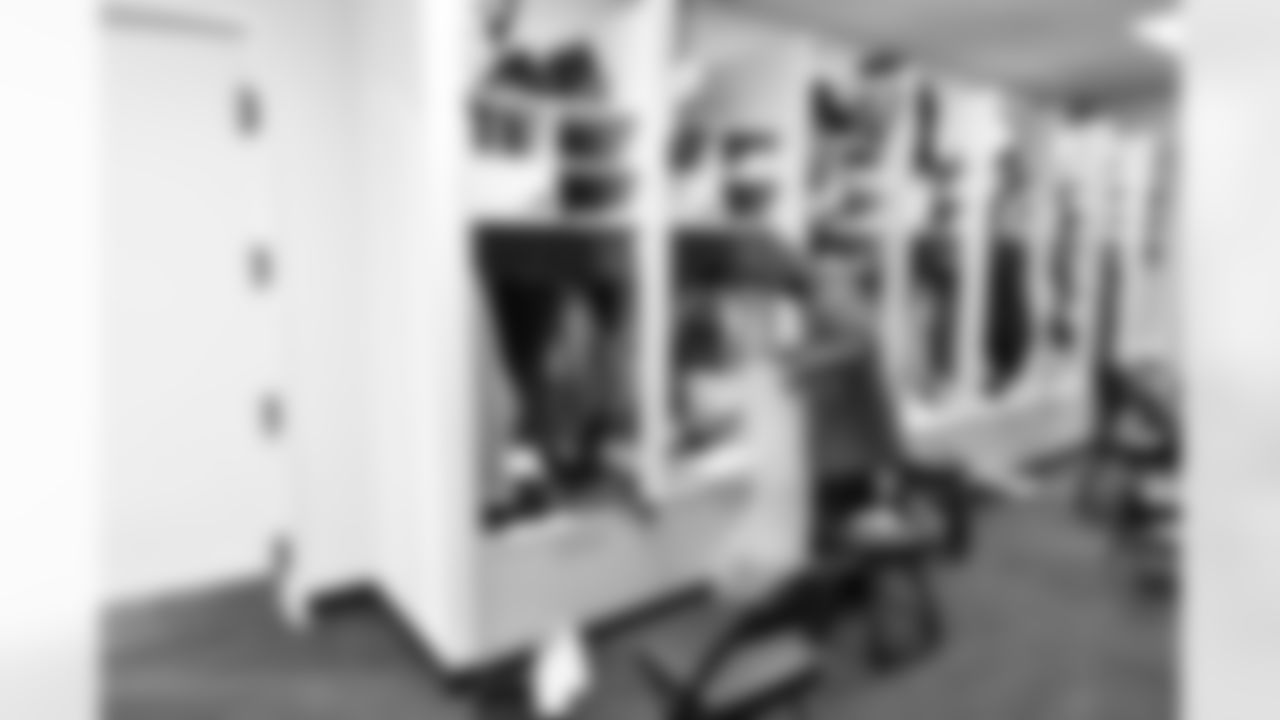
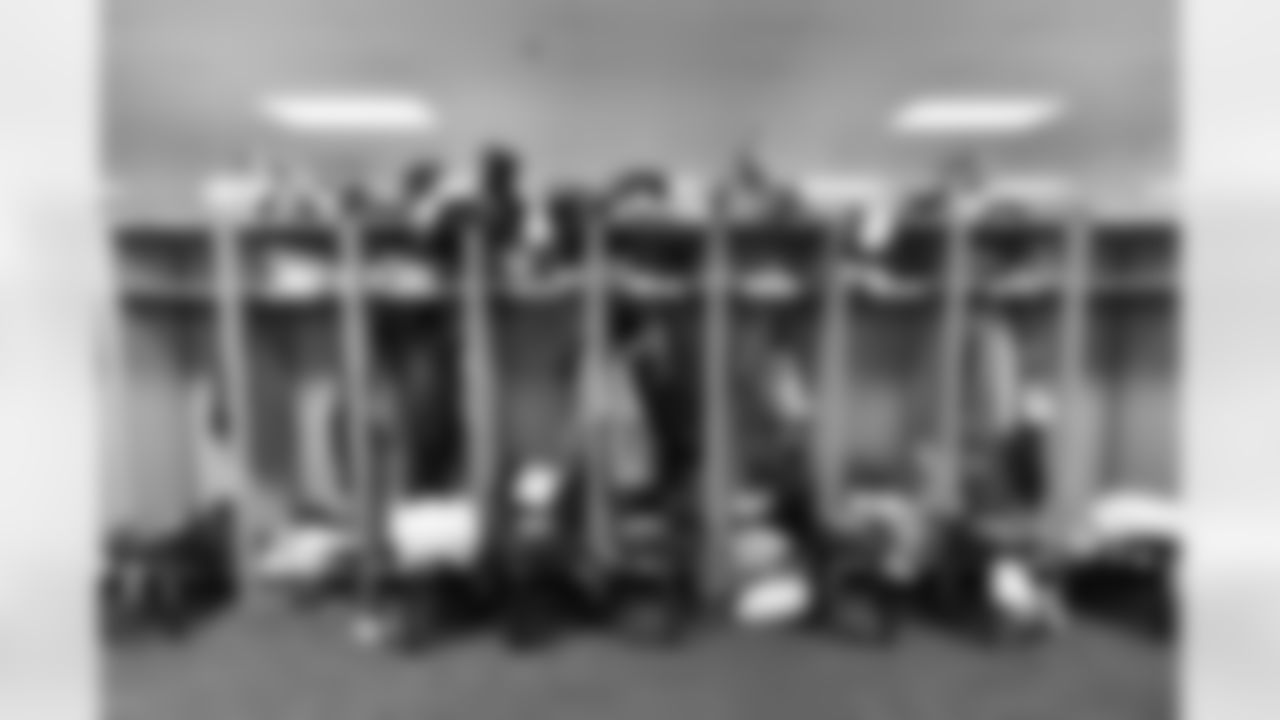
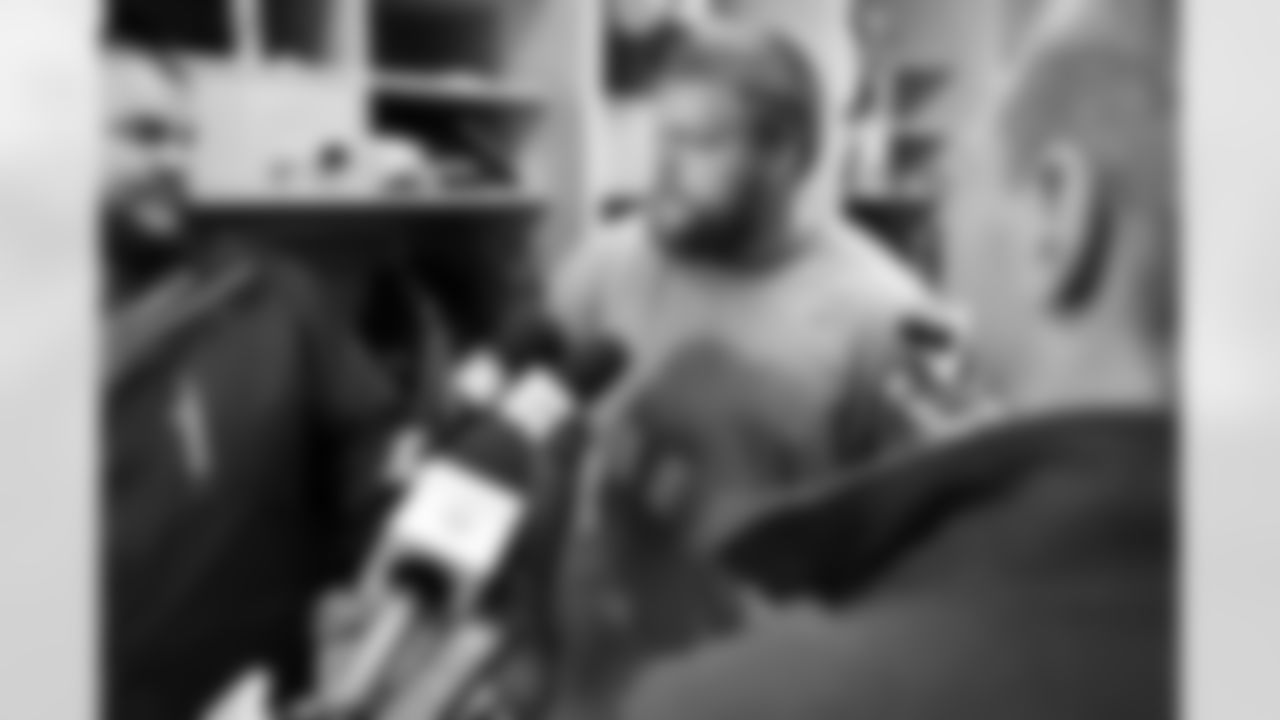



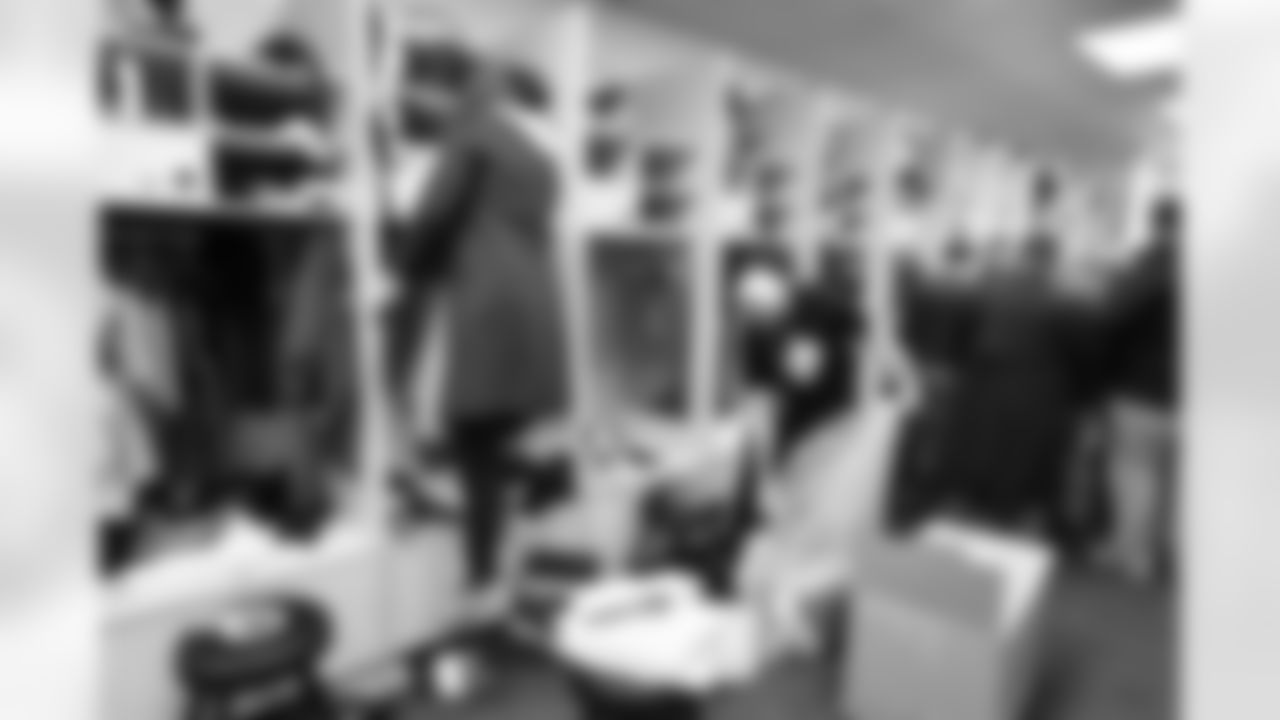

"It was miserable. You [were] there. You've seen it. You've seen how dead the locker room was," left tackle Trent Williams said of December 2014. "It was a dark place to be to know that you come into work for a whole month, month and a half, knowing that the games were basically meaningless. As you can imagine, it was pretty tough."
That prompted Malcolm Blacken, the Redskins' director of player development, to take some ownership and change the scenery, and to briefly change his title to community organizer.
He brought in two sets of black leather couches and chairs for each end of the locker room before offseason workouts began. He put card tables in the center of the circle and then hung a few televisions, rotating with a variety of sports channels that would eventually spur on debates about basketball players or college football rankings.
"I wanted to create more of a community within that space," Blacken said. "I went to [President] Bruce Allen and [head coach] Gruden with the idea last offseason, and with their support was able to add the chairs, tables and TV's."
The origins of this idea aren't entirely straightforward — defensive end Jason Hatcher claims he told Blacken about the need to have a more communal space, maybe the needed whisper that helped Blacken's elevator pitch with the team's leadership.
"I mentioned to Blacken, I said, 'We don't have no time. We spend more time with the media than we do with ourselves,'" Hatcher said. "We meet with you guys [the media] and we went on our way. I don't know if it had anything to do with what I said, but the couches are in here, and it paid off."
Many things paid off, including a winning record and a trip to the playoffs. But Hatcher was speaking primarily about the evolution and dynamic in the room itself, the foundation for all that success.
A winning team usually shares a certain filial bond with its members. It's rare to find a strong franchise that has divisiveness and lacks cohesion between its players and coaches. But attaining some level of that doesn't work artificially, which is to say couches and card games and ESPNU do not a good football team make. You need players who want to sit down, who want to open up a new deck and start dealing.
Some of them were already on the team — Chris Baker and Trent Williams, for example — but a vast majority came from free agency and trades, orchestrated by McCloughan, made sure to hire players with strong pedigrees on and off the field. What he did was construct a team that didn't care for egos.
So, after any given day of practice, it wouldn't be a surprise to find Terrance Knighton dealing out hands to Quinton Dunbar, Jeron Johnson and DeSean Jackson. Maybe Jordan Reed and Matt Jones would walk over and grab a spot, carrying some food and plopping down for a round next to Darrel Young, Dashon Goldson and DeAngelo Hall.
"Without a question, this is probably the most tight we've been as a team," Baker said. "With the TVs and the lounge area and the stuff in the locker room, it gave us a lot of time to have a social life when we're with each other at work."
Or, as his fellow lineman and veteran of 10 years, Kedric Golston, believed, the spontaneous circles and lunch tables were microcosmic of something bigger.
"It's just a reflection of the overall culture," he said. "Those chairs and those tables and those cards don't mean anything. But it shows you kind of the reflection of fellowship in the locker room."

Building chemistry
The question is always raised when a veteran player from a winning organization joins a new, struggling team. Does having experience aboard a successful franchise really matter? The simple answer is that yes, it can matter. The more complex answer is that yes, it can, but only if that experience takes action.
And it did, almost immediately for the Redskins, once nose tackle Terrance Knighton came to Washington on a one-year deal after his contract with the Broncos expired.
"Everybody just has to be on the same page," Knighton said in May after the first day of OTAs. "Everybody has to come together. Guys have to hang out on and off the field and everybody has to be selfless and do what it takes for the team, and that's something that I learned in Denver."
Knighton went to Hatcher and found they had similar ideas. Both knew the value in spending time together with teammates without their pads on. The nose tackle had the group over to his house twice a week for dinner to watch the NBA playoffs, and then eventually to watch their own sport.
"I used to do all the hook-ups for our defensive line, watching Monday Night Football, Thursday Night Football," Baker said. "Once my wife got pregnant, it's kind of hard to have a house full of guys. [Knighton] took over and did a great job. Every time it's Monday Night Football, Thursday Night Football, we go over to Terrance Knighton's house and have a great time."
Knighton said he was part of something similar when he played with veteran defensive end DeMarcus Ware in Denver. Those experiences made him a firm believer in bonding outside of Redskins Park, and not just with his position group. Rookies and veterans, special teams and offense, there wasn't any delineation.
"It just feels good sometimes to have a good meal, order some wings and just watch football and talk football," Knighton said. "You know your guys a lot better. When you're playing next to a guy, you can trust him a little bit more. It just brings us together as one."
Golston, the elder statesman of the team, noticed the shift this season, too, observing that the participation levels for his weekly bible study gathering at his home had been "phenomenal."
"It's a bonding experience," Johnson said. "Just as coaches who go out to eat after games, even businessmen, who go to happy hour after with their coworkers. That's all it is. It builds chemistry. It allows you to trust the man next to you."
That trust spawned stronger relationships between teammates – it held them more accountable and for many, elevated their performance by working in unison, giving them confidence and comfortability on the field. And consider its importance in a season that saw so many fall prey to serious injury. Each week it seemed a new nameplate slid below a locker, bringing with it a new player — Will Blackmon, Mason Foster, Alex Smith — lacking the experience and camaraderie that had been previously established.
No matter. A couple card games, a welcoming atmosphere, an invitation to someone's house, expedited missed months together.
"When I transferred over, they treated me like I had been there since OTAs," said Dunbar, who made the switch from wide receiver to cornerback near the end of training camp.
"It's a family. Everybody actually took care of me. It's my first time that that's happened," said Dashaun Phillips, a practice squad cornerback who was activated to the roster in late November. "I started playing for the guy next to me. I started playing for my brother. I've never really been on a team where guys come so close together… I know I'm not the only that feels like that."
A second home
There's an inherent chicken-and-egg debate between winning and a positive locker room atmosphere. Can you really have the camaraderie without the results to show for it?
"It's just winning, man. We want to win. The winning produces an environment that everybody loves," Williams said. "I think winning is the key."
"I think winning helps it facilitate more," linebacker Will Compton said. "But to win in the first place, you've got to be a team that comes together. I think both kind of go hand in hand."
Compton's logic seems apt, especially considering the closeness of this particular Redskins team, dating back to training camp. Without becoming collegial, could there have been a finish line sprint into the playoffs?
The answer may be unclear, but winning tends to keep people around the facility longer. When the results follow from a hard week of work, players realize what kinds of changes become effective. Hence, sitting around for a card game isn't so much a trivial activity to forget about football. It's the tonic after a good sweat, another chance to bond without speaking in football verbiage.
Instead of play calls they make friendly wagers and bets. They join games of tonk and spades and teach the rules to those who have never played. They remain competitive without having to hit anyone.
"These guys taught me how to play tonk. It's the worst thing that could ever have happened to me," Johnson said. "I used to be a blackjack player but they taught me a few games and I wish they wouldn't have."
"J.J.'s the worst card player," running back Matt Jones joked. "He sucks. He's bad. You want to play against him."
"I love playing spades. Me and Bake are definitely the team to beat in this locker room," Knighton said. "They think we cheat because we've known each other since we were kids."
Even if they do, Hatcher doesn't seem to mind as long as it contributes to more conversation.
"When you sit down and play cards, a guy might cheat a guy and get mad, they may fuss and bring them closer," he said. "It's good. We needed that. We got the TVs in here. It feels like a second home, come in here and relax, chop it up with each other. It's good."
Even Gruden has made his way inside to observe some contests, taking the temperature of his players before returning to his office.
"I don't know if it's because of the couches, but I just think it's just the people in general," Gruden said. "They get along pretty good down there — really overall. It's a lot of good personalities mixed and they get along good. They have a lot of respect for one another. They play a little cards down there — whatever — but it is a close-knit group."
That's why that second Monday in January became more difficult than in years past. These weren't just teammates leaving for the winter. This was a family, knowing that all its parts may not be around when it returns in a few months.
So maybe the camp metaphor isn't entirely accurate. This was one last card game before school let out for summer. Maybe some friends were graduating. Maybe some would move away. Instead of yearbooks, players signed helmets and footballs, collecting the signatures of men they hoped they could call teammates again.
And it wouldn't be a stretch to say that Golston, who has seen his fair share of ups and downs inside Redskins Park, spoke to the media that day as though he were the team's 2015 commencement speaker.
"I'm proud because it didn't end the way we wanted to, but it's a special locker room, and a lot of people throw that around, but this locker room, from the old guys to the young guys, they care, they care about each other more than just about football," Golston said. "Winning the NFC East was a goal that we had and we did that and so this team will be remembered for that. And so, you know, no matter what anybody says about them, no matter what the future holds, this group of guys will always have that beside their name."
Cue the music.
Reshuffle the deck.
.
.
.






